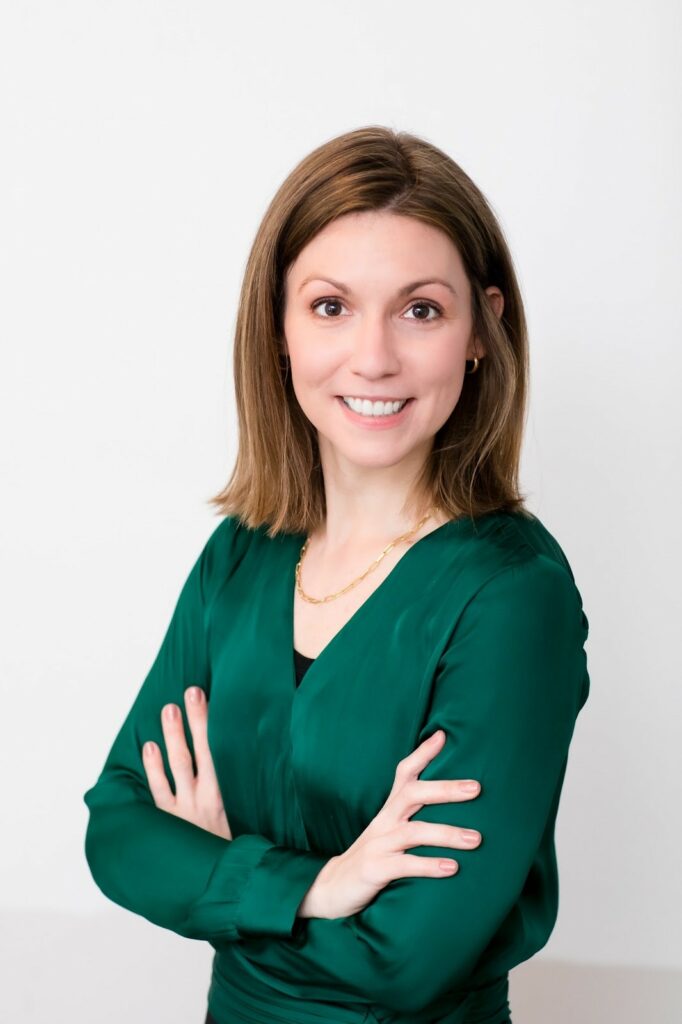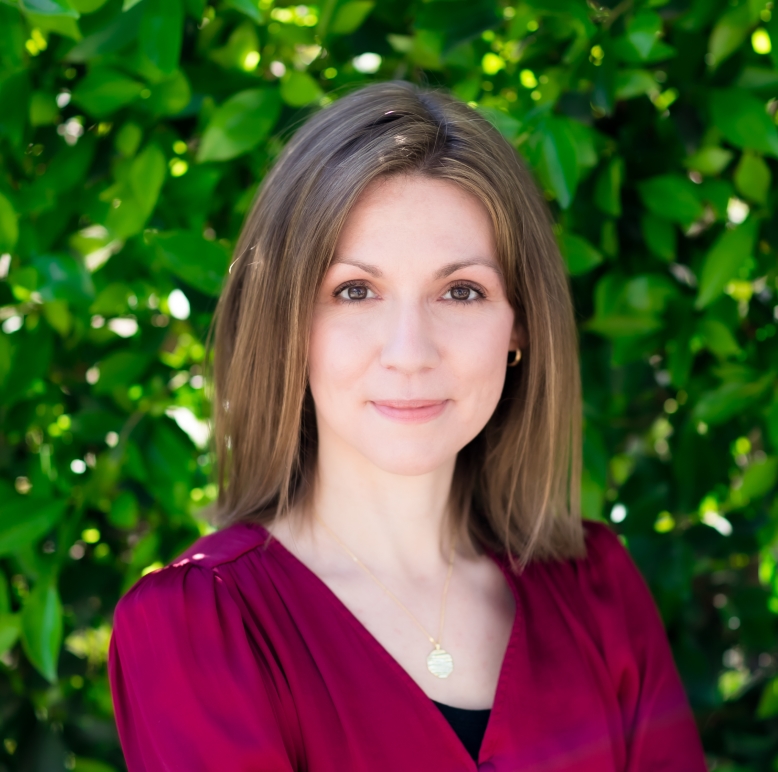Contents
Hello! Who are you?
Hello! My name is Stephanie and I’m a California licensed marriage and family therapist. I own my private practice, Stephanie Gilbert and Associates, LLC, where I not only see clients but supervise other clinicians.
I have two Maltipoos, Moxie and Sunshine, and am currently training for my first half-marathon! In my free time, I enjoy traveling and spending time with friends and family.

💡 By the way: Do you find it hard to be happy and in control of your life? It may not be your fault. To help you feel better, we’ve condensed the information of 100’s of articles into a 10-step mental health cheat sheet to help you be more in control. 👇
What is your struggle and when did it start?
My mental health symptoms started when I was 15 years old. My father died when I was 9, and I believe that loss contributed to my struggles later as a teen. It started with some disordered eating patterns that quickly turned into anorexia, and then anxiety that turned into OCD.
I grew up in a small town, and while my mother did take me for treatment, it was a challenge finding specialized care (as it is for so many across the country). I continued to struggle and at about 18 developed severe anxiety symptoms including panic attacks and OCD.
While I had tried therapy throughout this time and got better but then symptoms would return, it wasn’t really until my early 20s that I found a therapist and started to feel like a recovery for me was actually possible.
During the time I was struggling, I was able to complete college and maintain some sense of normality in my day-to-day life. But as anyone who’s struggled with mental health symptoms knows, my symptoms overshadowed almost every moment of my life that I remember during that time.
The times I missed out with friends because I was ‘in’ my eating disorder. The times I spent anxious and worried when I should have been carefree and having fun. From the outside I looked calm and collected, getting good grades, and involved in extracurriculars, but inside I felt like I was falling apart.
How did this struggle make you feel at your worst moments?
I felt incredibly alone, trapped in my head most of the time. My experience of having an eating disorder and OCD was awful. Most if not every moment was spent worried or obsessing over something. It was also such a strange experience to have people complimenting my looks because we do live in a society that celebrates thinness, while I was struggling so deeply with my eating disorder.
Some people closest to me knew I was struggling, but not everyone. I had a lot of guilt and shame around my OCD and eating disorder, and really felt if I was just better then I would figure out how to heal myself. I know now that’s not true, but at the time I blamed myself for being sick.
Having such severe mental health issues, I’m not sure I could say I was ever happy during this time of my life. And that’s heartbreaking to me, but I think it’s true for most who struggle with issues like mine. There were times I was laughing or enjoyed seeing friends or family or a vacation, but it was such surface-level happiness. I mastered looking happy while I was suffering, and that’s not true happiness.
👉 Share your story: Help thousands of people around the world by sharing your own story. We would love to publish your interview and have a positive impact on the world together. Learn more here.
Was there a moment when you started to turn things around?
Finding a therapist that I felt believed in my recovery completely shifted things for me. Which is why I became a therapist too. I felt like I wasn’t alone, that there was someone who understood and didn’t judge me for what I was going through. And she believed in me at times more than I believed in myself.
I was lucky too that I had family that encouraged me to get help. I know that’s not always the case for a lot of people. I struggled for about 10 years before I found help that really was effective. I had been trying therapy but wasn’t getting much relief, and at some points in my journey just thought it would never work for me.
I do remember a particular moment when I was struggling and had a realization that I just couldn’t function with the amount of symptoms I had – everything was too hard to manage on my own.
That was the moment I called and made an appointment with a new therapist because I had tried therapy prior but hadn’t ever had a therapist that specialized in what I was going through so it wasn’t successful, and that’s the therapist that was ultimately the most helpful in reducing my symptoms and helping me to be where I am today.

What steps did you take to overcome your struggle?
For anyone struggling with OCD, eating disorders, or any other mental health condition, I encourage you to reach out to a mental health professional.
If you have family or friends you can confide in, that can be very helpful in the healing process too. Too many of us suffer in silence, hoping things will get better, only to have the isolation in our suffering making it worse.
Also, it’s worth mentioning that not every therapist specializes in everything. I know for me it was key to find someone who specialized in what I was going through to actually see results.
If you go to someone with no experience in what you’re going through, at best it’s unhelpful, and at worst it’s harmful. I know this now as a mental health professional, but I didn’t know that when I was struggling, so I like to share that with others who don’t know the details about mental health professional training.
Have you shared any of this with people around you in real life?
I have shared this in my personal life, and I’ve shared this as a mental health professional as well. My hope is that talking about what I’ve been through can further reduce the stigma about mental health issues and getting help.
There was a time when I didn’t share as much, and I think everyone needs to make the decision for themselves if they feel comfortable sharing and with who. But I do believe that stigma and shame can be reduced by speaking about what we’ve gone through, myself included.
If you could give a single piece of advice to someone else that struggles, what would that be?
Get help now. You’re worth getting help now. So many people question whether or not they deserve help, if they’re ‘sick enough’ (often with eating disorders), the shame prevents people from reaching out, or fear what people may think of them if they see a mental health professional. No one.
What have been the most influential books, podcasts, YouTube channels, or other resources for you?
- The book Brain Lock helped me understand OCD when I was first diagnosed.
- I also like Judith Beck’s writings on CBT and anxiety.
Where can we go to learn more about you?
Sure! You can visit my website here, my Instagram is @stephaniegilbertmft, this is my personal LinkedIn while this is for my practice.
💡 By the way: If you want to start feeling better and more productive, I’ve condensed the information of 100’s of our articles into a 10-step mental health cheat sheet here. 👇
This Cheat Sheet Will Help You Be Happier and More Productive
Thrive under stress and crush your goals with these 10 unique tips for your mental health.
Want more interviews?
Continue reading our inspiring case studies and learn how to overcome mental health struggles in a positive way!
Want to help others with your story? We would love to publish your interview and have a positive impact on the world together. Learn more here.



